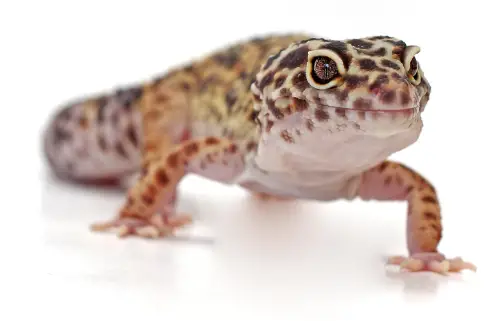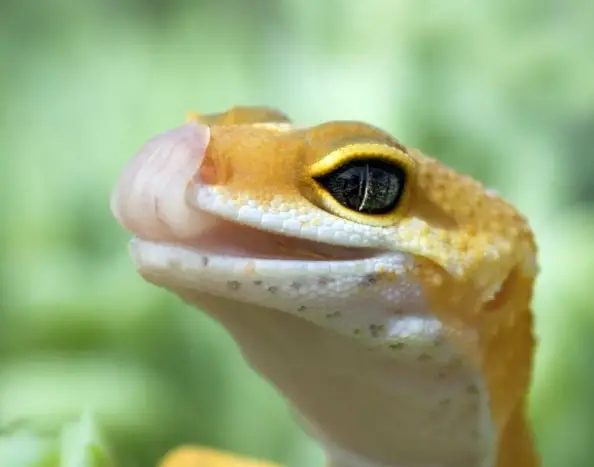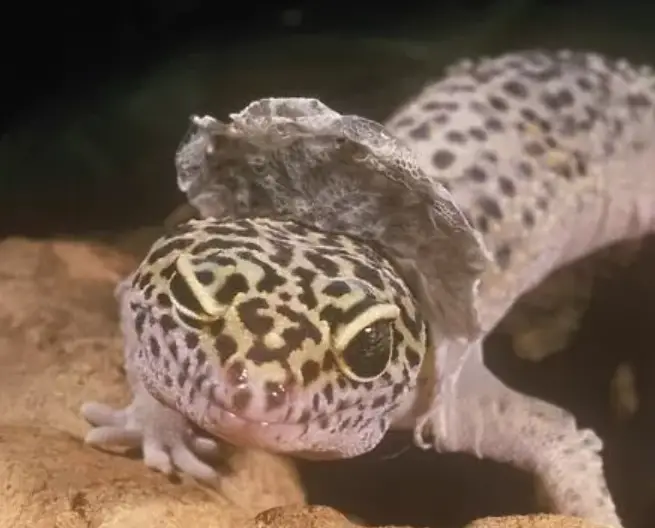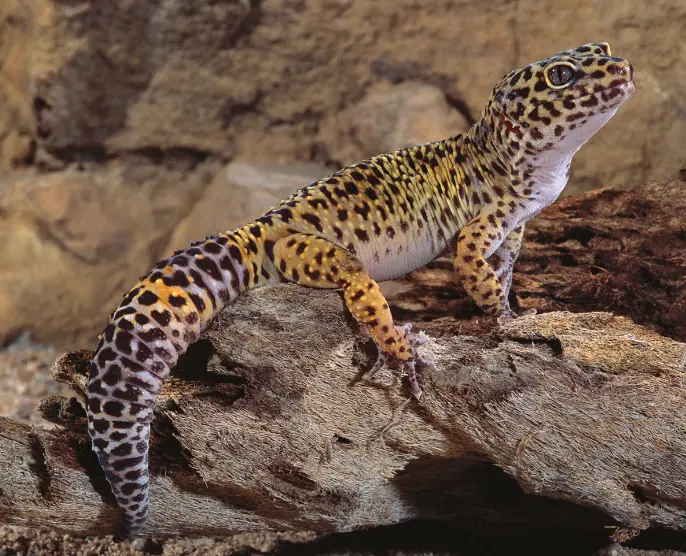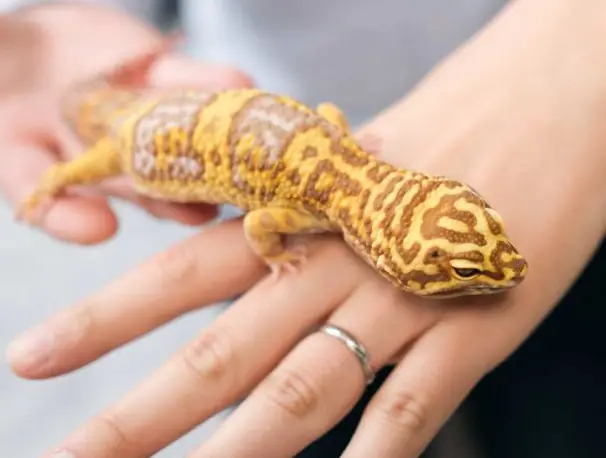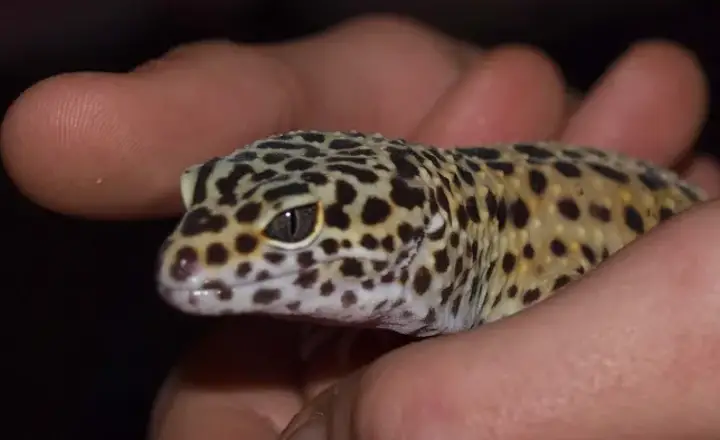Leopard geckos are voracious eaters and won’t eat anything that doesn’t fight back. Because crickets are active insects, they make great food that many geckos have a hard time resisting. If your Leo doesn’t eat crickets, you may have a problem. This article will help you find possible reasons for the problem.
Leopard geckos may refuse to eat crickets if they have cage problems, health problems, or cricket problems (too large or inactive). Leopard geckos may also depend on other insects. These factors may occur simultaneously or independently, so it is important to analyze each.
This article provides a comprehensive analysis of why leopard geckos do not eat crickets. It also provides valuable tips on how to stimulate the gecko’s appetite for crickets.
Will My Leopard Gecko Survive Without Crickets?
Yes, your leopard gecko will do just fine as long as its diet doesn’t include crickets.
Cricket food is packed with nutrients and their erratic movements stimulate the hunting reflex, but many other insect options are available for your pet. Their quick movements also encourage young Leos to forage. When Leos reach adulthood, new insects are usually introduced into their diet.
Some individual geckos decide, after trying, that they prefer other insects to crickets. Crickets are notorious for their very loud calls that annoy reptile owners. These owners are usually very happy that leopard geckos don’t like crickets.
However, other insects may not be as readily available as crickets in certain areas, and some owners may insist on including crickets in a gecko’s diet, even if their pets do not eat them.
What Are The Reasons My Leopard Gecko Won’t Eat Crickets?
Feeding problems
These are issues related to the general diet of crickets, other insectivores, and Leos.
- Your gecko won’t eat stuck crickets
Leopard geckos are predators that feed on insects that live in their natural environment. Caught Leos will not eat dry or dead crickets. Providing life, moving crickets should mimic their natural diet. - Your Leo has changed taste preferences
In the wild, geckos eat a wide variety of insects. While some pet geckos like to eat crickets forever, some owners report that their Leos seem to get bored with repeated meals. In cases like this, they usually whet their appetites when they offer variations. - Crickets are too big for your Leo
If you offer a large cricket, the Leos will refuse. It is important to feed crickets that are smaller than the gecko’s eye spacing. A large cricket can crash into Leo’s gut. - You gave too many crickets
Your Leo will not eat more than he is full. A baby leopard gecko can only eat 5-7 crickets a day, while an adult eats 6-7 crickets every other day.
Habitat problem
Geckos may refuse to eat crickets if habitat conditions are unfavorable.
- Vivarium temperature and lighting too low
Geckos require high temperatures to properly digest their food. Cold temperatures prevent geckos from properly digesting their food. Therefore, they do not eat the crickets provided. - Humidity in the breeding room may be lower than necessary
Leopard geckos will not eat crickets or other food if the humidity in the enclosure is too low. The ideal humidity is 30-40%, never below 20%. - Your gecko dwelling is unfavorable
If the gecko doesn’t eat the crickets, check the enclosure. Dwellings should primarily be modeled after natural habitats. Build a vivarium horizontally with a wider area than vertically.
Health concerns
Underlying health issues can also cause Leos to avoid grills and other foods.
- Your gecko has poor eyesight
Visual impairment is a common problem in injured or aging leopard geckos. Temporary blindness can occur due to incomplete molting due to low humidity. In these conditions, Leos cannot hunt crickets, so they can be fed with tongs or given slow-moving insects like mealworms. - Your Leo may be suffering from a collision
Collision is a common condition in leopard geckos. This is a partial blockage of the digestive tract caused by a Leo swallowing large amounts of food or non-food. - Metabolic bone disease (MBD) can be a problem
Geckos that suffer from MBD are unable to catch crickets because their bones are weak or deformed. MBD is caused by calcium and vitamin D3 deficiencies and the presence of excess phosphorus. - Your Leo May Have a Parasite
Pinworms are common intestinal parasites of leopard geckos. However, pinworms can overwhelm and weaken captive geckos more easily than wild ones. Pinworms especially reduce Leo’s appetite and can be eliminated with prescribed treatment. - A molted gecko cannot be eaten for several days
Molting is a common behavior of reptiles. Leopard geckos are notorious for consuming their molted skin to replenish their nourishment. Geckos do not eat crickets or other food for several days before and after molting. - Your Leo may refuse to eat during bloomers
Bruising resembles hibernation. It is a period during the cold season (often from December to February) when your leopard gecko enters a deep sleep to reserve energy. During this time its activity level is minimal, and it may not feed. - Pain can Prevent Your Leopard Gecko from Eating
Mouth rot, also known as infectious stomatitis, is a painful bacterial disease affecting the mouth, gums, and teeth. It can spread all over your Leo’s body if not treated. - A Gravid Female Leo often Loses their Appetite
After mating, a female leopard gecko gets pregnant and lays eggs 16 to 22 days later. As the egg grows, the abdomen may swell and the appetite may decrease. - Your leopard gecko may be traumatized
Some leopard geckos refuse to eat prey insects if they have had a bad experience in the past. If your Leo has been bitten by a cricket before, repeat the experience. Instead, he may find himself refusing to eat it.
How To Get My Leopard Gecko To Eat Crickets
- Moving crickets
Do not feed the gecko’s fixed or stored crickets. Because they are visual predators, there is no incentive for creatures to eat them, as there is no need to “catch” them. When introducing insects to the gecko habitat, make sure they are alive and moving. - Choosing the Right Size Crickets
Leopard geckos need food that is appropriate for their weight. Baby geckos only eat small crickets that are less than 1/4 inch in length. Larger, mature geckos can catch larger prey, but still, need to be sized to fit between the gecko’s eyes. Try smaller prey and work towards a larger diet. - Make sure it’s the correct type of cricket
There are many types of crickets, and not all are suitable for leopard geckos. The most common breeds are bred commercially by cricket breeders and sold in pet stores. - Don’t feed freshly caught crickets in your garden unless you’ve bred them yourself and know exactly what they’re eating.
It can infect leopard geckos with parasites fed at dawn or dusk. Leopard geckos are most active in the dark and may not eat crickets offered during the day. Try to feed early in the morning or early evening when the sky starts to darken, during the natural hunting season. - Don’t feed too many crickets
Leopard geckos lose interest when their hunger is satisfied. Feeding times are typically about 10-20 minutes. You ignore the rest of the creatures you place in the habitat. Instead of having crickets fly around and annoy your pet, pull them out. Biting the legs of a sleeping gecko can cause serious injury.
Conclusion
Even as pets, leopard geckos retain their wild hunting instincts. They are carnivores and one of their staple foods is crickets. But you could have tried offering crickets but they just turned away. Is it sick or your pet is telling you you are doing something wrong? How to get lions to eat crickets.
If your leopard gecko refuses to eat crickets, you need to make sure the crickets are alive, pollinated, and of the proper size and species. You should also make sure that the tank conditions are within the optimal range and that the leopard gecko is healthy.
